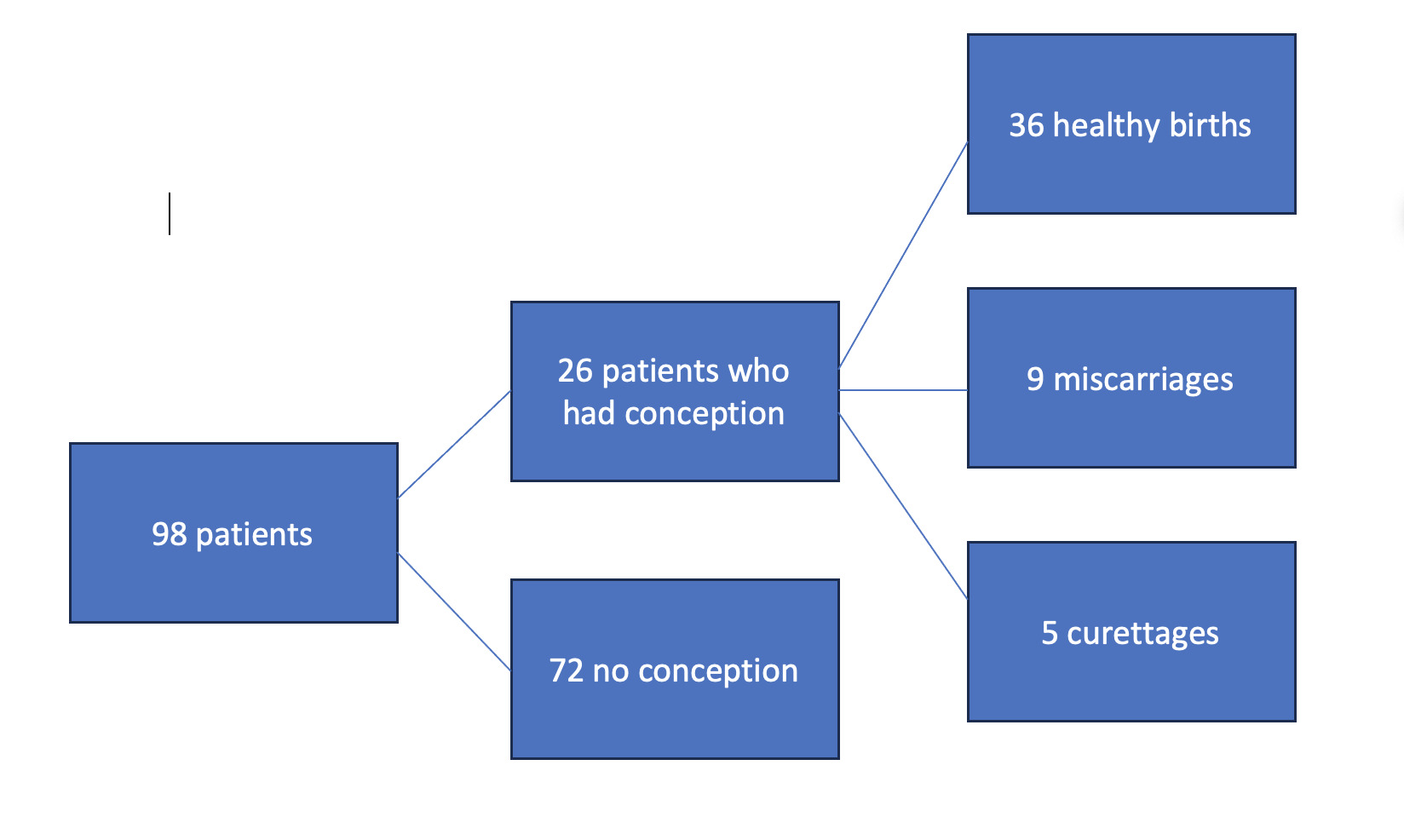Session Information
Date: Monday, November 13, 2023
Title: (1345–1364) Reproductive Issues in Rheumatic Disorders Poster II
Session Type: Poster Session B
Session Time: 9:00AM-11:00AM
Background/Purpose: Inflammatory arthritis is a group of rheumatic diseases characterized by the inflammation of joints with systemic manifestations: psoriatic arthritis (PsA), rheumatoid arthritis (RA), and spondyloarthritis (SpA) are included in this group. The use of anti-TNFs in arthritis has become very frequent, especially after the 2000s with established efficacy. However, their effects on fertility in men remain mostly unknown. In this study, we aimed to determine the effect of anti-TNFs on the fertility of men.
Methods: We performed a questionnaire on married male patients who were diagnosed between 1987-2020. The following questions were asked: Did your wife get pregnant while you were using an anti-TNF agent? How many times did she get pregnant? Which drug were you using when your wife got pregnant? Was there any problem during the pregnancy? Were you using any contraception? Have you ever been evaluated for infertility? What drug were you using during the time your wife could not get pregnant? Did you have any children when you were not taking anti-TNF treatments? After this questionnaire, we reevaluated the patient group who had pregnancy under anti-TNF treatment. We recorded any data regarding pregnancy complications and pregnancy-associated situations.
Results: 98 patients were involved in our study. The mean age of the patients was 54. 82 (80.39%) patients had AS, 12 (11.76%) patients had PsA, and 8 patients had RA. 72 patients did not experience pregnancy and 67 of them were using contraception (Figure 1). The number of patients taking anti-TNF treatments (infliximab, etanercept, golimumab, and adalimumab) who could not get pregnant despite trying to conceive was 5.Among those 5 patients, 4 were screened for infertility, revealing unknown etiology for 3, and the remaining 1 was of female origin. 2 of these 5 patients had already conceived and given birth before anti-TNF treatment. The patient who was not screened for infertility had been trying to conceive for the previous 2 months. The total number of conceptions was 50. There were 9 miscarriages under anti-TNF treatment and 5 curettages under anti-TNF treatment (four of them were voluntary and one of them was a medical requirement). There were 36 healthy births ( Figure 1). The patients who had miscarriages were using the following medications: certolizumab pegol (2 patients), golimumab (1 patient), etanercept (1 patient), adalimumab (1 patient), etanercept (3 patients), and infliximab (1 patient). The patient who had a curettage due to a medical requirement was using golimumab.
Conclusion: Among the male patients taking anti-TNF treatment, infertility due to paternal origin does not seem to be a major issue according to our limited data. Anti-TNF treatment thus seems to be safe with regards to fertility in male patients.
To cite this abstract in AMA style:
Toker Dincer Z, Ates B, Dag A, Turkoglu I, Ayla A, Ugurlu S. Paternal Effects of Anti-TNFs in Inflammatory Arthritis [abstract]. Arthritis Rheumatol. 2023; 75 (suppl 9). https://acrabstracts.org/abstract/paternal-effects-of-anti-tnfs-in-inflammatory-arthritis/. Accessed .« Back to ACR Convergence 2023
ACR Meeting Abstracts - https://acrabstracts.org/abstract/paternal-effects-of-anti-tnfs-in-inflammatory-arthritis/

